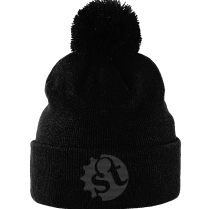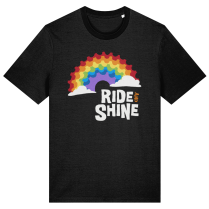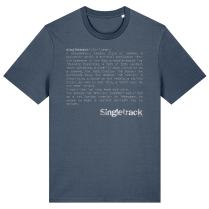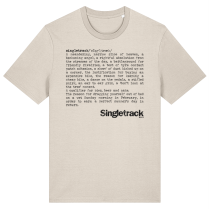Of course, you’ll probably say ‘none of it’, right? But something, somewhere, informs your buying choices, and you have to hear about a product in the first place to know it’s available to buy. How do we get from anonymity to desirability?

Before we continue, let us take a sidestep into our unsolicited emails…
Subject: You Posted A Very Related And Interesting Article
I’m a big fan of your blog, and I wanted to know if you’d be interested in writing about the beautiful product I’ve been working on, [Redacted]. [Redacted] is an eCommerce website selling all potato-related utensils, including all other types of kitchen appliances and gadgets. I know you’re busy, but if you can find time to write a quick article about [Redacted], this will help me get my business off the ground.
I know you’re probably wondering why you should link back to my product page from your blog. I’m in debt and would appreciate the effort to link back to the original article. But more than anything else, I want to build relationships with other bloggers, so that we can all support each other when it comes time for launches and new products! —
CEO [Redacted]
We were tickled by the ‘potato-related utensils’ – what is there once you’ve dealt with peelers, mashers and knives? Crinkle-cut chip makers, perhaps? Or curly fry curlers? The mind boggles. The honesty of ‘I’m in debt’ also caught our eye. Sympathy as a marketing tool?
Anyway, we get a lot of this sort of thing, and of course, we mostly ignore it. But for all that you probably think marketing definitely doesn’t work on you, there is a whole world of people who think it does, and they make it their job to sell stuff to you. As well as filling our inbox with all sorts of emails they hope will catch our eye and we’ll share with you, there’s a myriad of different tools and techniques out there. Some marketing is entertaining, some is annoying, and some you might not notice.
Latest Singletrack Merch
Buying and wearing our sustainable merch is another great way to support Singletrack
Tools of the trade
The most obvious are adverts – whether they’re pop ups on websites, print adverts, billboards and banners, or even sponsored advertorials, shredits, and – the marketing dream – viral ads. These days, some brands are masters of social media. Yorkshire Tea is usually pretty good value:
“Don’t buy stuff you don’t need don’t buy stuff you don’t need don’t buy stuff you don’t need…”
— Yorkshire Tea (@YorkshireTea) November 25, 2022
*Buys Lego Death Star*#BlackFriday
US brand Pit Viper is another brand that plays well on social media. They’re especially good at messing with people trying to criticise them or kill their ‘sunglasses for everyone’ vibes. Perhaps most famously, when their sunglasses became popular among the Make America Great Again/Let’s Storm Congress/Proud Boys crew, Pit Viper figured out who some of them were and donated the money from their purchases to causes Pit Viper figured these buyers wouldn’t be too happy about. There’s also a whole ‘Pit Viper Gives a F*ck’ corporate social responsibility program.
New Policy: Money received from confirmed racists will be donated in their name. Thanks for working against your cause Nick Fuentes! pic.twitter.com/i8RpWVJLvD
— Pit Viper (@PitViperShades) July 15, 2021
Which brings us neatly on to what brands do beyond marketing their products’ attributes, in an effort to make you part with your money. If you think a brand is supporting causes that you also support, then the thinking is that you’ll buy from them. Patagonia is probably the stand out brand on this front, promoting its environmental credentials and taking an activism role on some issues. Are you buying their sweatshirt because it’s cosy and soft, or because it says you care about your impact on the world? Or, because you think wearing it makes you look like someone who cares about their impact on the world?
Sponsored athletes, influencers and racers also cast their sparkle – or shadow – on a brand’s image. Make a wrong move and they might get dropped – which might work either way to affect how you feel about the brand. If they’ve dumped your favourite rider perhaps you think twice about buying that brand in future? Or maybe dropping riders behaving badly makes you think the brand has principles?
What your friends say, or what you read on forums, can have a lot of influence too. Rumblings of poor customer service can put buyers off, even if it’s just your one mate that had a bad experience vs plenty of other happy customers.
What’s the point?
If you’re as likely to heed your riding buddy’s advice as be swayed by any slick video promo, what’s the point in all that marketing? Does athlete sponsorship have any impact on what you buy? Does what you read in our reviews influence you at all? Or is it heartwarming or gripping tales that add shine to how you feel about a brand?
When times are tight, marketing spend is one of the first things to go, and we’re seeing brands pull sponsorship, restructure their support packages, and cut advertising budgets. We’re sure they’ve got their ideas about what they think works – and a bunch of tracked internet clicks to back up their theories. But we’d like to know what you think works. What influenced your last bike purchase? Take our poll and let us know!
For this poll, we want you to pick the three factors that you think are most important to you, and enter a number as follows:
1 – most important
2 – second most important
3 – third most important
You must be logged in to see the survey
Leave all the other answers blank! Will any of these classic marketing tools get zero votes?
If you are reading this message you are not logged in and so you can’t view or complete our marketing survey.




